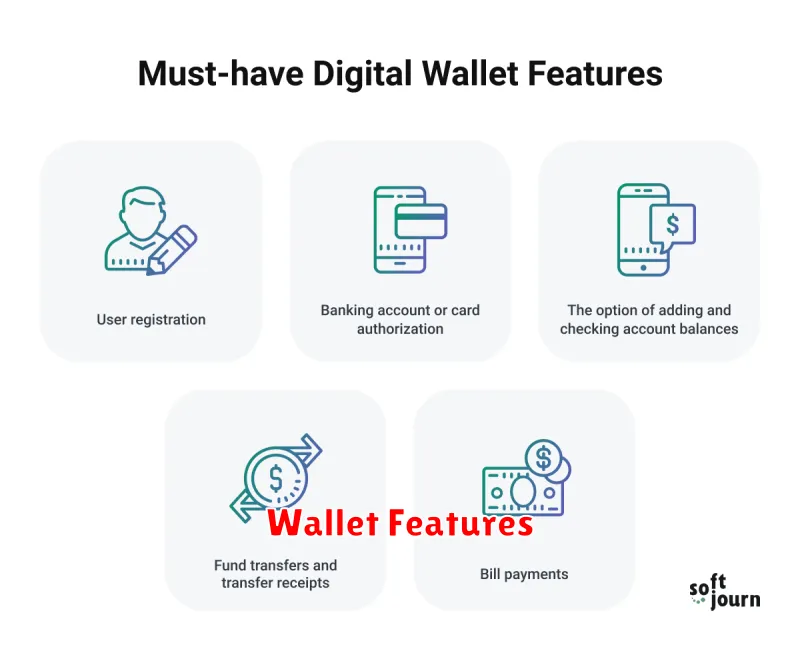Choosing the right crypto wallet is crucial for securing your digital assets. With a vast landscape of options available, navigating the features and finding the best crypto wallet for your needs can be overwhelming. This article highlights 10 essential features to consider when selecting a crypto wallet, ensuring you prioritize security, user-friendliness, and functionality to protect your cryptocurrency investments. We’ll explore key aspects like multi-currency support, hardware vs. software wallets, transaction fees, and more to guide you in making an informed decision and ultimately finding the perfect crypto wallet for your individual requirements.
Multi-Currency Support
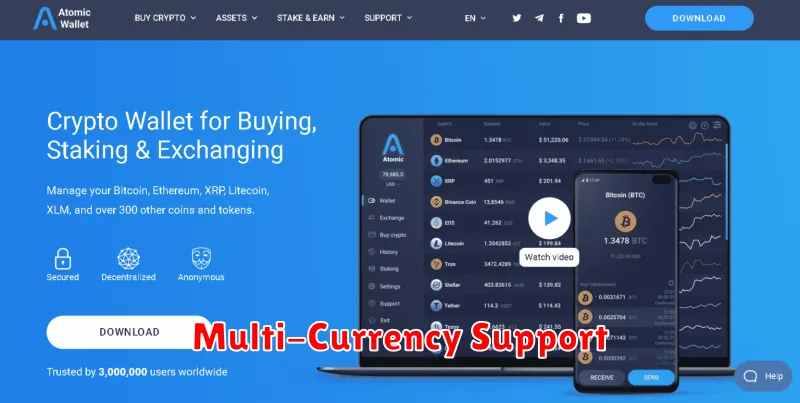
Multi-currency support is a crucial feature in a cryptocurrency wallet. It allows you to store and manage various cryptocurrencies within a single platform, eliminating the need for multiple wallets to handle diverse assets.
The best crypto wallets offer support for a wide range of cryptocurrencies, including both major and niche coins and tokens. This broad support simplifies your portfolio management, enhancing efficiency and convenience.
Consider the specific cryptocurrencies you own or plan to acquire when evaluating a wallet. A wallet with extensive multi-currency compatibility ensures you can consolidate your holdings in one secure location.
Furthermore, check if the wallet supports the addition of new currencies as the cryptocurrency market expands. This future-proofing element will prevent the need to switch wallets as your portfolio diversifies.
Robust Security Features
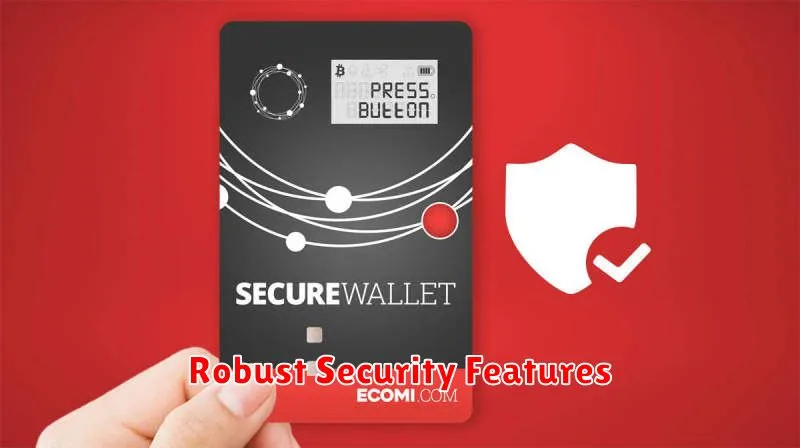
Choosing a crypto wallet requires careful consideration of its security features. Multi-factor authentication (MFA) is crucial, adding an extra layer of protection beyond just a password. Look for wallets offering hardware security modules (HSMs), which provide offline storage for your private keys, significantly reducing vulnerability to hacking. Biometric authentication, such as fingerprint or facial recognition, can offer convenient and enhanced security. Regular security updates are vital; ensure the wallet provider actively addresses vulnerabilities and implements the latest security protocols. A strong emphasis on encryption, both at rest and in transit, is paramount. Finally, investigate the wallet’s reputation and security track record; research any known vulnerabilities or breaches.
User-Friendly Interfaces

A user-friendly interface is crucial for a positive crypto wallet experience. Look for intuitive navigation, clear labeling of functions, and easily understandable displays of account balances and transaction histories. The best wallets prioritize simplicity, minimizing jargon and technical complexities.
Consider the overall design aesthetics. A clean, uncluttered layout promotes ease of use. Accessibility features such as adjustable font sizes and high contrast modes are also important for inclusivity.
The wallet’s onboarding process should be straightforward and guide new users through essential setup steps without overwhelming them. Comprehensive, yet easily accessible, help documentation and customer support options are also key components of a user-friendly experience.
Ultimately, a user-friendly interface ensures that managing your cryptocurrency is a smooth and stress-free process, regardless of your technical expertise.
Backup and Recovery Options
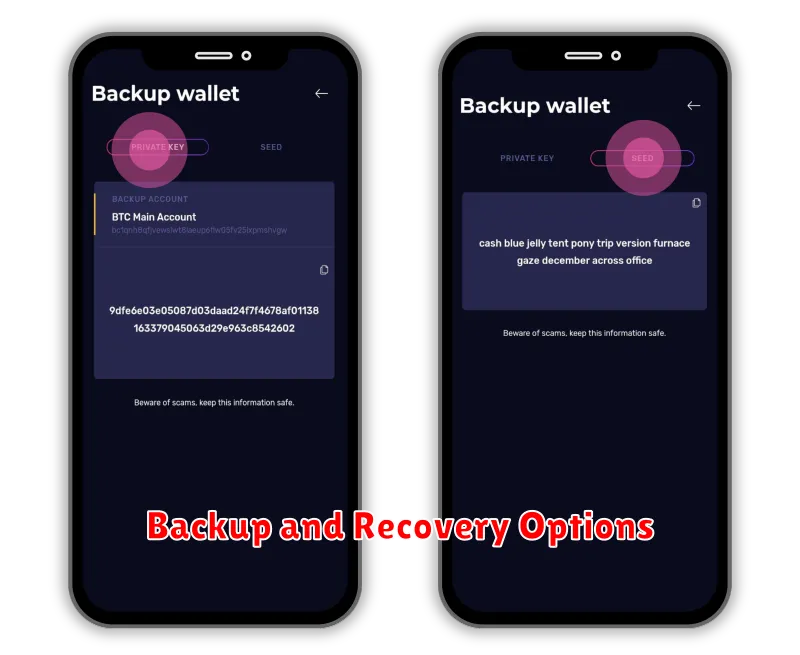
A robust backup and recovery system is crucial for any cryptocurrency wallet. Look for wallets offering multiple backup options, such as seed phrase generation (a list of words representing your private keys) and the ability to export your private keys. Secure storage of your backup is paramount; consider using a hardware device, splitting your seed phrase across multiple secure locations, or employing a password manager for enhanced security. The wallet should also offer a clear and straightforward recovery process in case of device loss or damage. Ensure the recovery process is user-friendly and doesn’t require complex technical knowledge.
Consider wallets that provide options for multi-signature wallets, enhancing security by requiring multiple approvals for transactions. Furthermore, investigate whether the wallet offers encrypted backups to further protect your sensitive data from unauthorized access. The availability of a help center or support resources dedicated to backup and recovery procedures is a valuable asset should you encounter any difficulties.
Integration with Exchanges
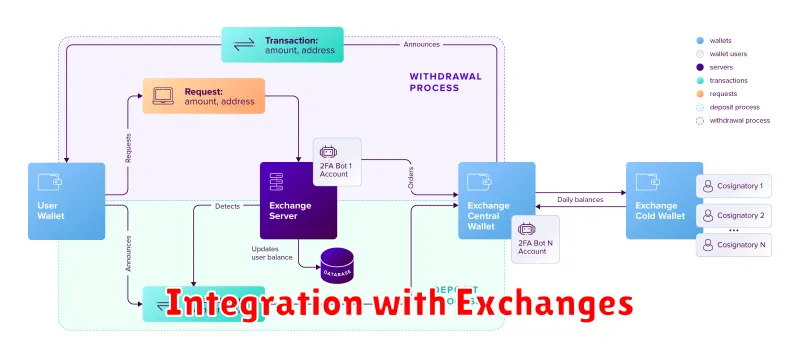
Seamless exchange integration is crucial for a convenient cryptocurrency experience. A top-tier wallet should offer direct connections to major exchanges, allowing for effortless deposits and withdrawals. This eliminates the need for cumbersome manual transfers, reducing the risk of errors and improving overall transaction speed.
Look for wallets that support a wide range of exchanges and offer clear, intuitive integration processes. The ability to view your balances across multiple exchanges from within the wallet itself is also a significant advantage, providing a consolidated overview of your cryptocurrency holdings.
Consider the security implications of exchange integration. Ensure the wallet employs robust security measures to protect your assets during the transfer process. A reputable wallet will prioritize user security and transparency in its exchange integration features.
Mobile and Desktop Compatibility
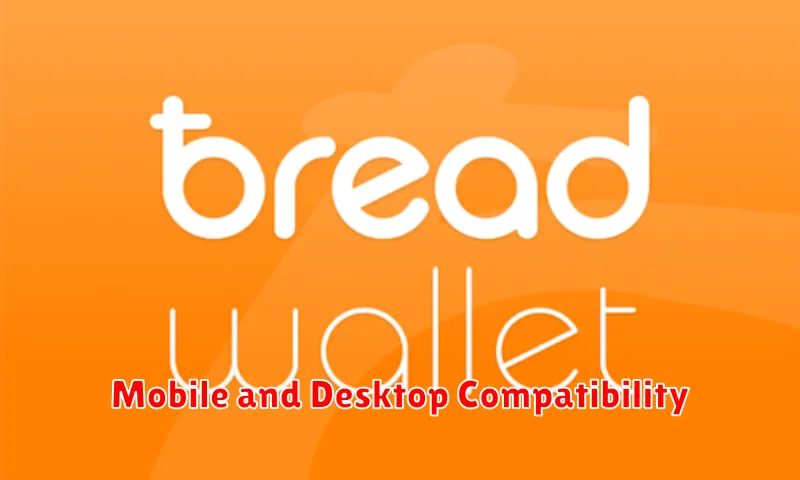
Mobile and desktop compatibility is crucial for a crypto wallet. A good wallet will offer seamless access across multiple devices, allowing you to manage your crypto assets conveniently from your smartphone, tablet, or computer. This ensures flexibility and accessibility, regardless of your location or preferred device.
Look for wallets that offer native mobile apps (iOS and Android) and a user-friendly desktop application (Windows, macOS, Linux). Synchronization between devices is also vital, ensuring your data is consistent across all platforms. The wallet should also offer a smooth user experience on both mobile and desktop, with intuitive navigation and a clean interface.
Prioritize wallets that provide features like offline transaction signing (for enhanced security) on both mobile and desktop platforms. This ensures a high level of security regardless of your chosen device.
Low Transaction Fees
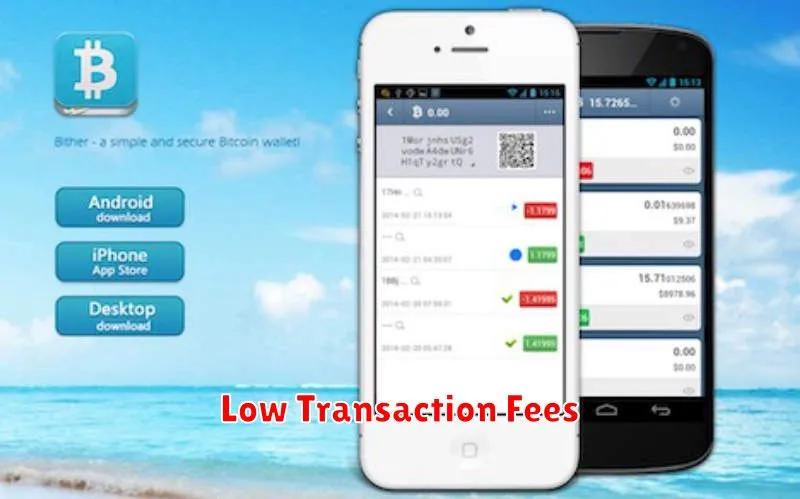
Transaction fees are a significant factor when choosing a cryptocurrency wallet. High fees can quickly eat into your profits, especially with frequent transactions. Look for wallets that offer low transaction fees, ideally with transparent fee structures so you can budget accordingly. Consider wallets that leverage efficient blockchain networks known for lower fees or those that offer batching options to combine multiple transactions into one, reducing overall costs.
Some wallets may advertise “low” fees but have hidden charges or complex fee structures. Therefore, carefully review the fee schedule before committing to a wallet provider. Pay attention to factors influencing transaction costs such as network congestion and the type of transaction (e.g., sending vs. receiving). Choosing a wallet with predictable and competitive fees will protect your investment.
Cold Storage Capabilities
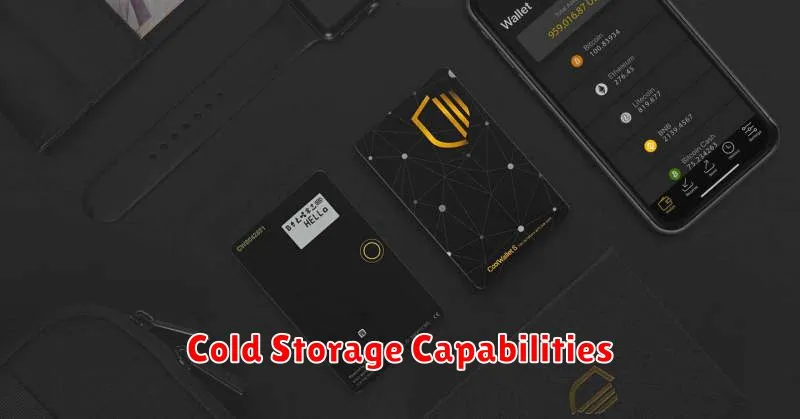
Cold storage refers to storing your cryptocurrency offline, significantly reducing the risk of hacking. Look for wallets offering this feature, either through dedicated hardware wallets or the ability to generate paper or metal seed phrases for offline storage. The best wallets provide clear instructions on securely managing your cold storage keys.
Consider the convenience of the cold storage solution. While some wallets may support multiple cold storage options, others might only offer one method. Ensure the chosen method aligns with your comfort level and security needs.
Security is paramount. A strong cold storage solution should be resistant to physical damage and unauthorized access. Wallets with robust encryption and secure seed phrase management are preferable.
Finally, evaluate the wallet’s user-friendliness in relation to its cold storage features. The process of using and managing cold storage should be intuitive and straightforward, even for less technically inclined users. A complex or cumbersome cold storage process diminishes its practicality and effectiveness.
Customer Support Availability
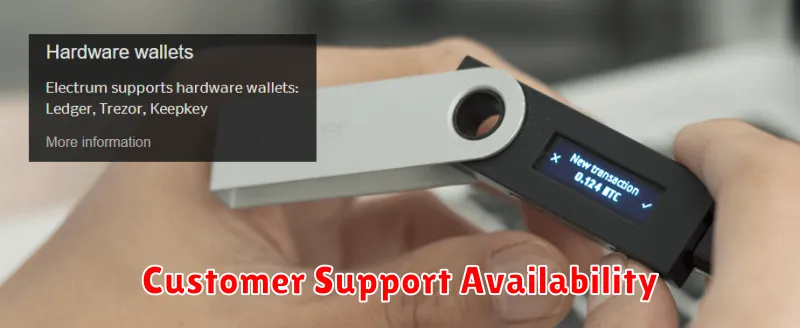
Reliable customer support is crucial when choosing a crypto wallet. Consider the availability of various support channels, such as email, phone, and live chat. Evaluate the responsiveness and helpfulness of the support team. Look for wallets offering 24/7 support, especially if you hold significant cryptocurrency assets.
The quality of customer support documentation, including FAQs and tutorials, is another key aspect. Comprehensive and easily accessible resources can significantly reduce the need for direct support interaction. A strong knowledge base demonstrates a commitment to user assistance and problem-solving.
Ultimately, readily available and effective customer support can be the difference between a smooth and a frustrating crypto experience. Prioritizing this factor will help ensure you have assistance when needed.
Advanced Features for Power Users
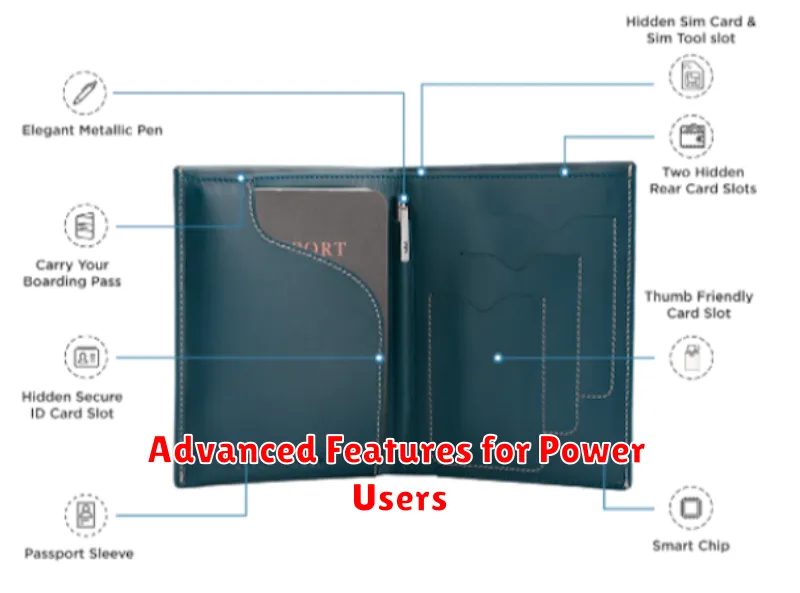
Power users benefit from advanced features that enhance security, control, and flexibility beyond basic functionalities. These often include:
Multi-signature wallets: Require multiple approvals for transactions, significantly increasing security against unauthorized access.
Hardware wallet integration: Seamlessly integrates with hardware wallets for enhanced security by storing private keys offline.
Customizable fee settings: Allows users to adjust transaction fees based on network congestion, prioritizing speed or cost-effectiveness.
Advanced security options: Offers features like two-factor authentication (2FA), biometric logins, and customizable recovery options.
Support for multiple blockchains and tokens: Enables management of diverse crypto assets within a single interface, streamlining portfolio management.
API access: Provides programmatic access to wallet data, enabling automation and integration with other tools and services.
Watch-only wallets: Allows monitoring of balances without holding the private keys, useful for viewing accounts held elsewhere.
The presence of these features indicates a wallet designed for users who require a high level of control and sophisticated security measures.

